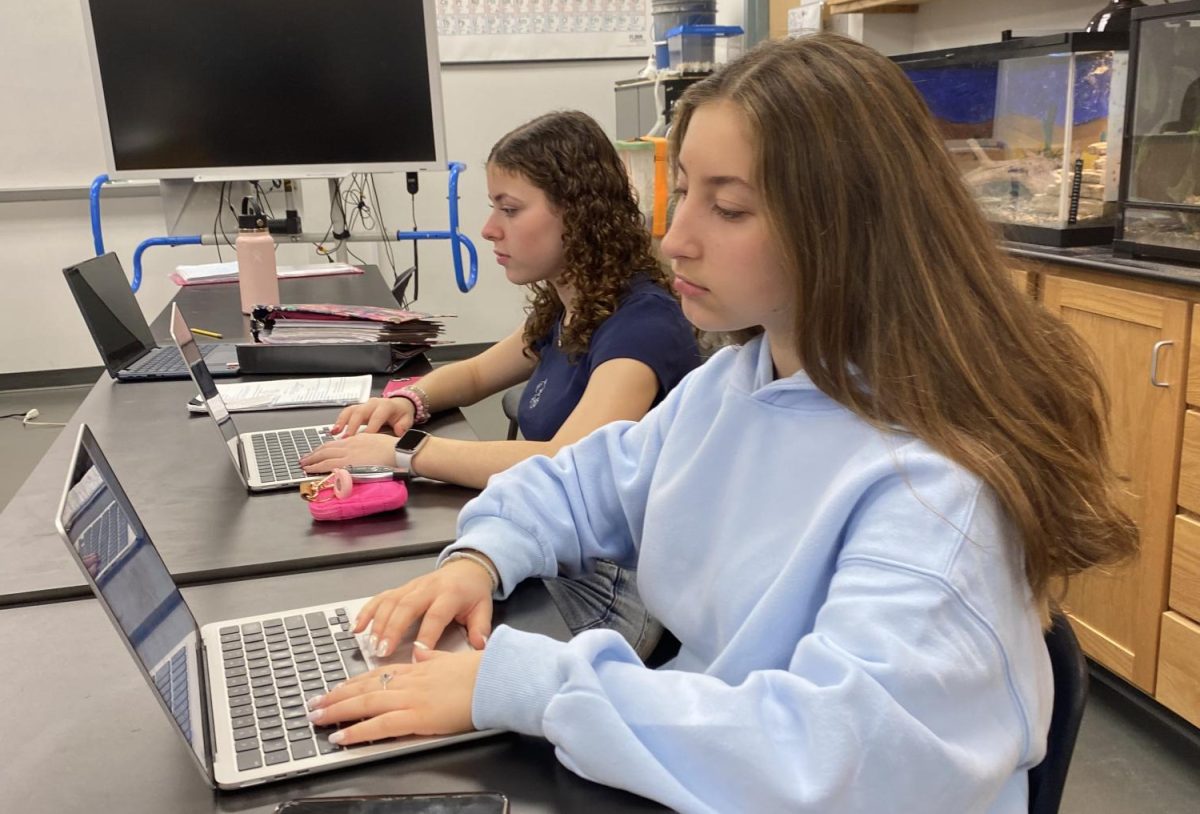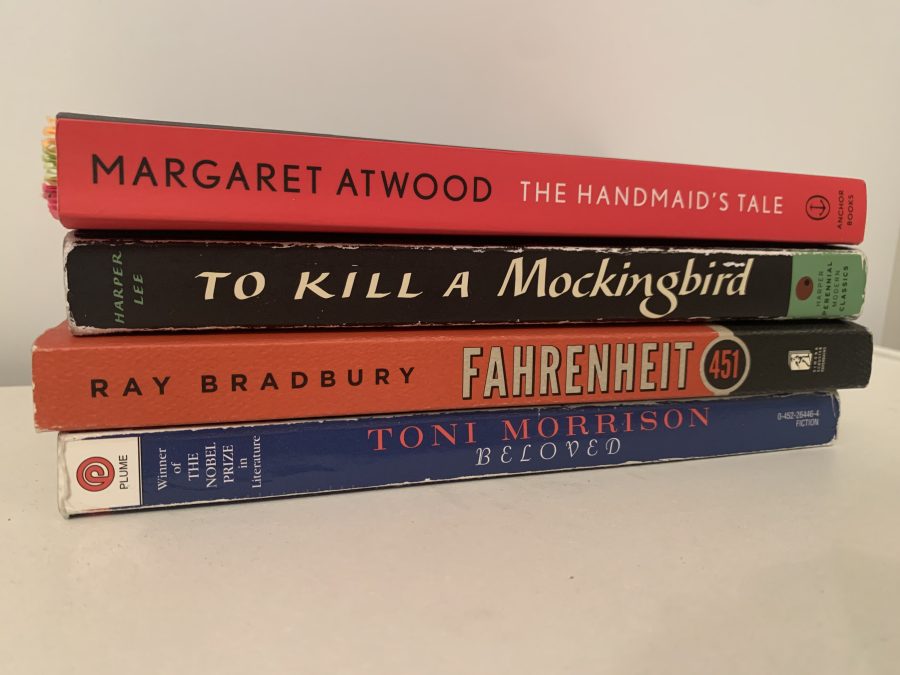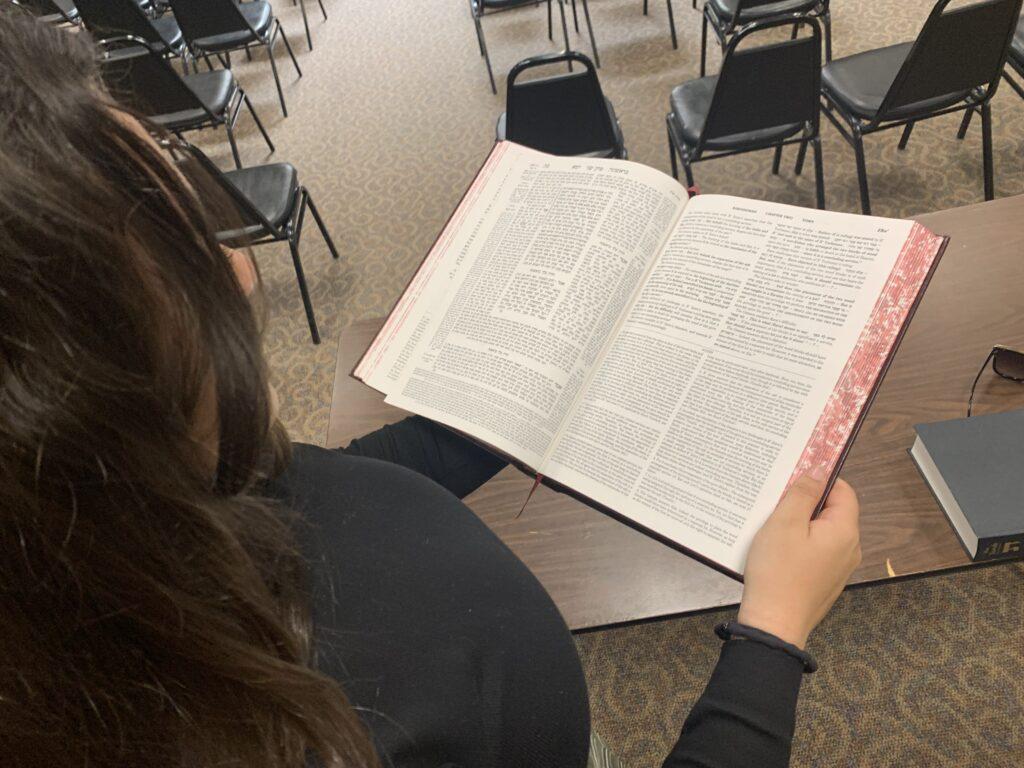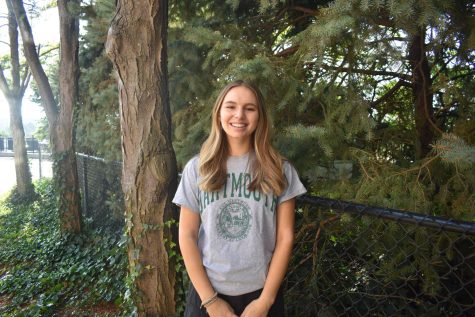Does Educational Censorship Belong in Jewish Schools?
May 10, 2022
Image by Annie Fingersh.
Across the country, books are being challenged and removed from libraries and school curriculums for being “too graphic,” “too profane,” or “too sexual.” Many of the books being refuted are some of the most famous and award-winning books ever written, including “To Kill a Mockingbird,” “Beloved,” “The Handmaid’s Tale,” and many others. If you’re a student at Hyman Brand Hebrew Academy (HBHA), these titles might sound familiar. That’s because every one of these books is part of HBHA’s expansive reading curriculum. However, HBHA is unique – many Jewish schools censor educational material. The question is: Why?
Recently, a Tennessee school board has banned Art Spiegelman’s Pulitzer Prize-winning graphic novel, “Maus,” (another book that HBHA students read) because of profanity and nudity. While there is profanity in the graphic novel, other books being taught also contain profanity, and as every character in the book is depicted as a different animal, it’s laughable that it is considered nudity. Since “Maus” is not being banned for profanity and nudity, why is it banned? People are afraid of confronting what makes them uncomfortable, like the horrors of the Holocaust. Other books are being banned across the country for similar superficial reasons, but the underlying controversies lie in people’s discomfort with discussing topics like racism, LGBTQ+ people, sex, and more.
Some people see educational censorship as a parental right; it’s argued that the ones raising kids should get to choose what content their child engages with. While this point does have validity, it essentially gives parents and students an “out” for choosing not to engage with certain topics that should be taught in schools. For instance, if “Maus” continues to be banned in schools across the country, some students will get little to no Holocaust education, a topic that is vitally important to world history. Similarly, topics such as racism and homophobia must be discussed so students can gain a better understanding of people different from themselves. If kids don’t learn how to talk about difficult topics and engage in meaningful conversation, people will continue to exist stuck in their own viewpoints and experiences, unable to relate to others.
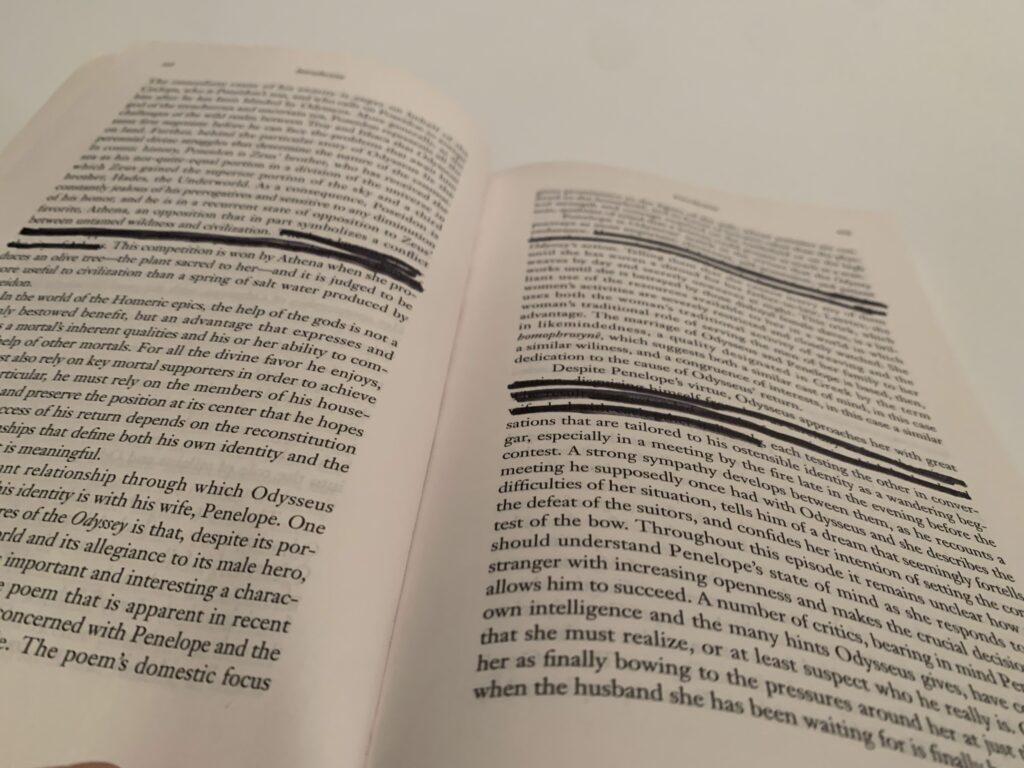
In this way, censorship can become just another form of discrimination, or not being willing to make the voices of minorities heard. There is even a history of Jewish literature being banned, like when the Syrian Greeks banned Jews from reading Torah, or even the 13th century Paris Talmud burning.
Dr. Avi Blitz, a teacher at HBHA, said that “as a minority that has experienced racism, alienation, and othering, we have a responsibility to listen to and engage with the marginalized voices of our own time.”
HBHA, despite being a parochial school, does this quite well and does not censor reading lists or educational material, and instead teaches their students about controversial topics like critical race theory. Students also read hotly contested books and learn to engage in meaningful conversations about topics such as race, slavery, feminism, sexual assault, violence, and more.
However, while HBHA does not censor books with LGBTQ+ characters, none of them are currently part of the English curriculum, until recently with the teaching of ‘Fun House.’” This may have to do with the Torah’s several statements opposing LGBTQ+ relationships, like “Do not lie with a male as one lies with a woman; it is an abhorrence,” and that those who do so “shall be put to death” (Leviticus 18:22 and Leviticus 20:13). This is a rather hypocritical statement because one can argue that the Torah is one of the most controversial, graphic texts of all time, including instances of incest (between Lot and his daughters), rape, prostitution (Tamar and Judah), graphic violence, and more.
Though HBHA does not censor material, it is no secret that some Jewish schools have histories of censoring reading materials and textbooks, like ones that include mentions of homosexuality or depictions of female bodies. My question is: If Jewish day-school students read the Torah every day, how can censoring other reading material be justified? The answer I have come to is this: It is not justified. It is simply a way to pick and choose what material is deemed appropriate for Jewish teens and to ignore anything controversial or that would spark inappropriate conservations.
Blitz says that “censorship has no place in a Jewish school,” and that history “teaches us that ideas in the world don’t disappear when people try to destroy them.”
In other words, censoring material does not destroy it from existence or make it impossible to find, so why bother restricting it at all? Some may say that teenagers aren’t ready to learn about difficult subjects at their age, but if not now, when? When they are in their 20s and have been taught for years that homosexuality is a sin? When they’re in their 30s and getting married but do not know how the female body works? This is the purpose of education, preparing teenagers for the world, but how will they be ready if they do not know how the world works?
Blitz says that “schools are places of learning, and difficult ideas should not be feared, but confronted.” Only by confronting difficult subjects can we truly grow as human beings, and schools are the best place to do so.




































